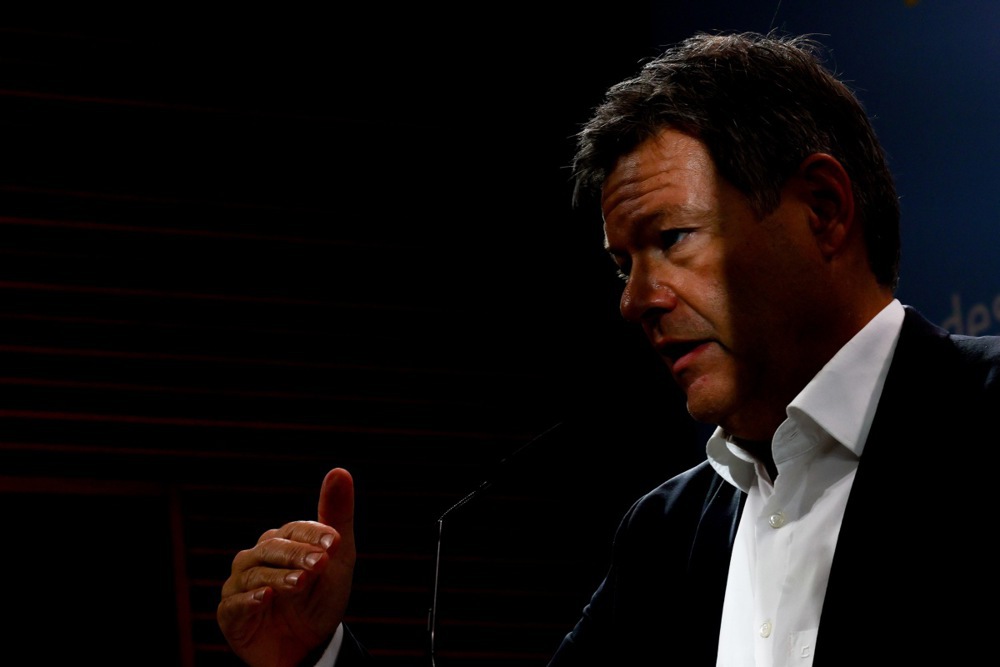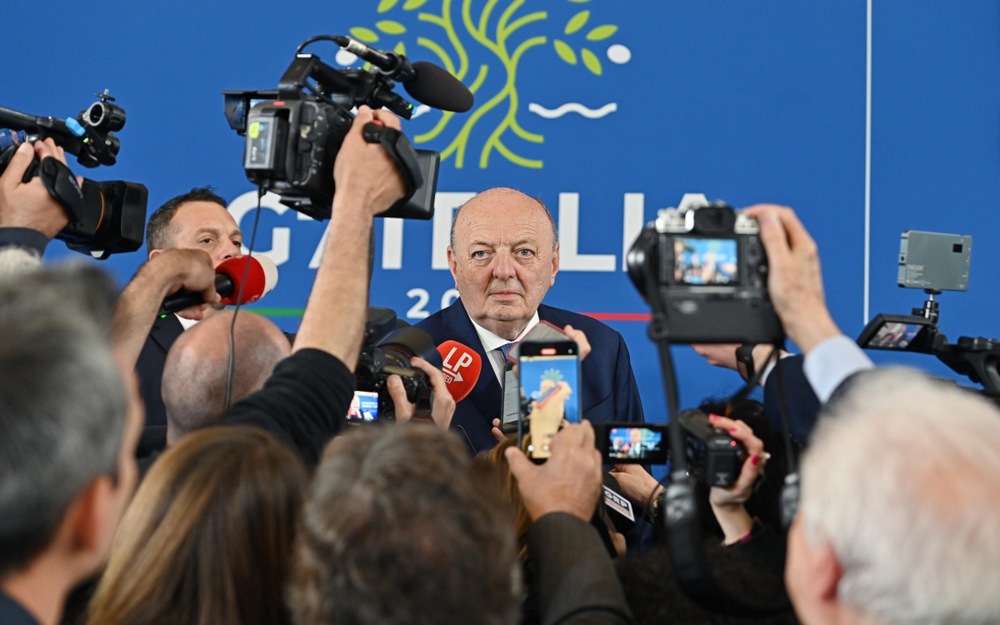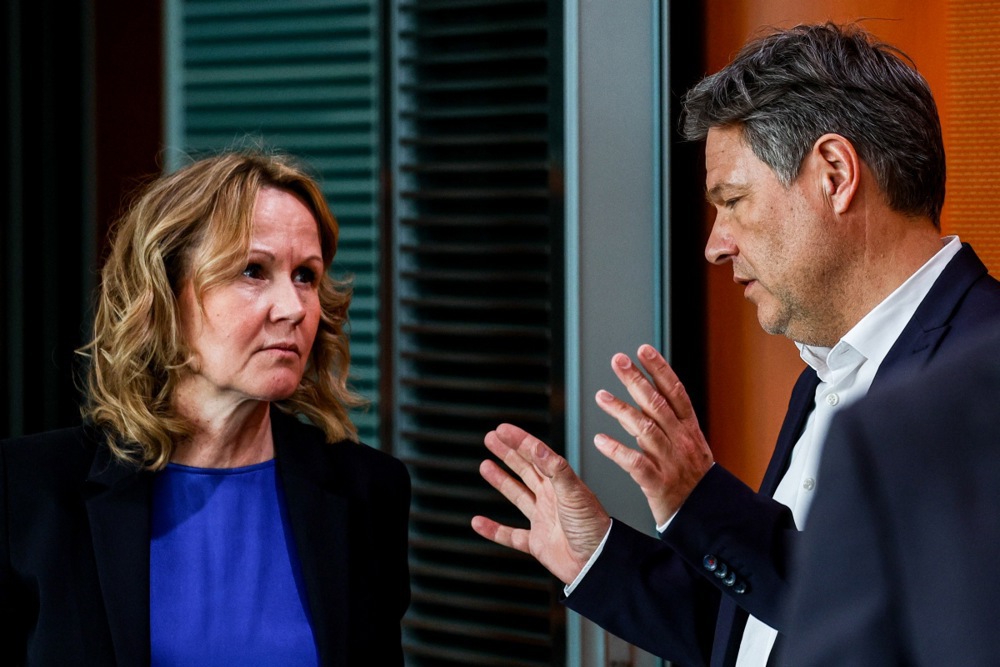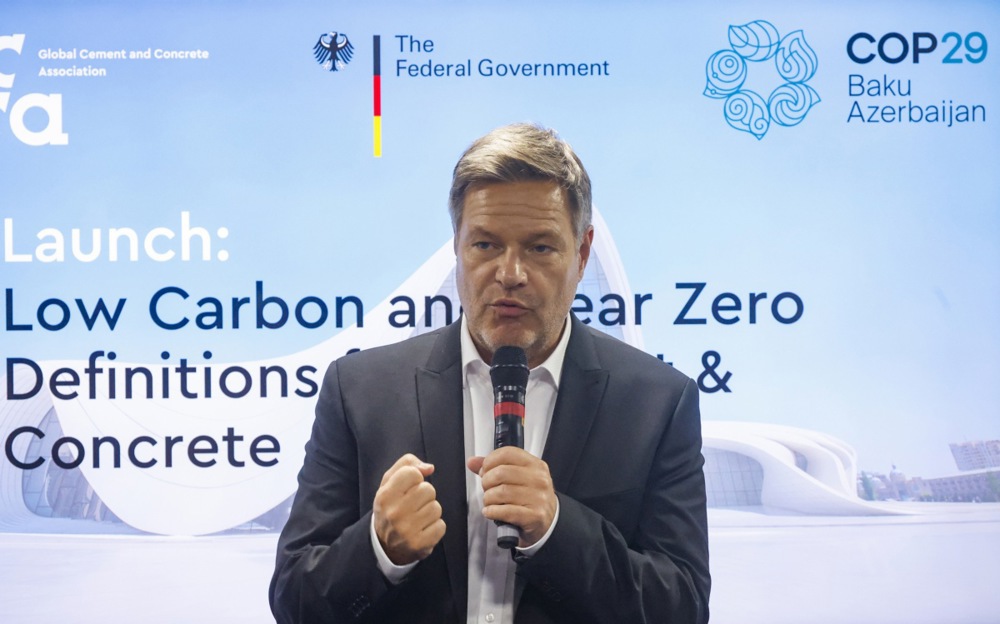Nuclear power plant managers have challenged Green Vice-Chancellor Robert Habeck’s assertions about the need for Germany’s nuclear phase-out.
In a parliamentary hearing, they rejected Habeck’s claims about safety concerns and the sufficiency of renewable energy, and said the decision to continue with the nuclear phase-out was “politically motivated”.
The former operators of Germany’s last nuclear power plants gave evidence to the German Bundestag’s committee of inquiry into the government’s nuclear policy, which was brought to life to investigate the nuclear phase-out.
Guido Knott, responsible for the Bayern 2 nuclear power plant, and RWE CEO Markus Krebber, who was in charge of the Emsland nuclear power plant, stated that it was technically possible to keep German reactors open, Apollo News reported on November 29.
Habeck and environment minister Steffi Lemke, also a Greens party member, had always asserted that the power plant operators would reject a lifetime extension.
Knott was critical, saying that fuel rods were more readily available than claimed in the public debate. He said ministers responsible had virtually ignored him.
He emphasised that the decision to shut down the nuclear power plants was “politically motivated”.
“Unexpectedly, there were claims of technical inaccuracies or suggestions that the operators were unwilling to act,” he said on November 29.
He stated he had already offered to keep operating his plant at the start of the energy crisis in February 2022. He added that continuing operations beyond the end of the year would have been possible from a safety perspective.
Originally, the plan was to shut down Germany’s three remaining nuclear power plants by December 31, 2022.
Rather than speaking with Knott, he said Habeck went over his head, talking to Leonhard Birnbaum, the CEO of E.ON, the parent company of the plant operator.
Birnbaum, Knott claimed, told Habeck that the hurdles to keep using nuclear while a phase-out was planned seemed very high and the benefits low.
The then-state secretary Patrick Graichen forwarded this report on and labelled it an “operator paper”. In his email, it appeared as if all three energy companies had agreed with the RWE boss’s assessment. Some have alleged this was a form of manipulation.
Graichen was fired from government after a nepotism scandal in May 2023, one month after the last German nuclear plant was closed.
On November 27 this year, he was appointed to the supervisory board of a Ukrainian power grid operator, of which Kyiv holds 100 per cent of the shares.
Krebber has said, regarding German plants, that he did not want to take the financial risk of continued operation, and that the availability of fuel rods had been problematic. According to Die Welt’s report of the same inquiry, this put him at odds with Knott, who was more firm in his opposition to Habeck.
He did add, though, that keeping the nuclear plants open for a longer period was technically possible. “Basically, it was and still is: Technically, almost everything is feasible,” Krebber said.
“We lacked confidence that this would be politically stable.” He continued: “If this is to be done, then we will do it, but we do not want to take the political risk.”
Another expert addressed the concept of a “cold reserve,” which would allow nuclear power reactors to be turned on and off as needed, much like an emergency power generator, which was quickly dismissed.
On the morning of November 29, an unnamed TÜV Süd (Technical Inspection Association) specialist described the cold reserve idea “the latest gimmick”. He said he had a suspicion that the Greens had suggested it in order to claim that the operators had refused to continue operating.
The expert said he was annoyed by Habeck’s televised claim that nuclear plants had not been inspected for 13 years, calling it “simply a lie” in an email at the time the phase-out debate was occurring.
While he said he would phrase it more diplomatically as “that doesn’t correspond to the facts”, he felt Habeck’s statement aimed to shut down debate prematurely.
Regarding the possibility of there being an open-ended review, he said: “I personally didn’t have that impression.”
The inquiry committee was created by the Christian Democrats (CDU), which wanted to investigate if Lemke and Habeck had truly considered objectively whether German nuclear power reactors could have operated for longer during the energy crisis in 2022.
The last three reactors were taken offline in April 2023. Since then, Germany has faced rising energy prices, damaging its economy.
A leaked 2022 letter from German Vice-Chancellor Robert Habeck to France’s then-energy minister has revealed that Germany’s nuclear phase-out relied on access to French nuclear power, sparking controversy. https://t.co/kIgrkccn27
— Brussels Signal (@brusselssignal) November 27, 2024





